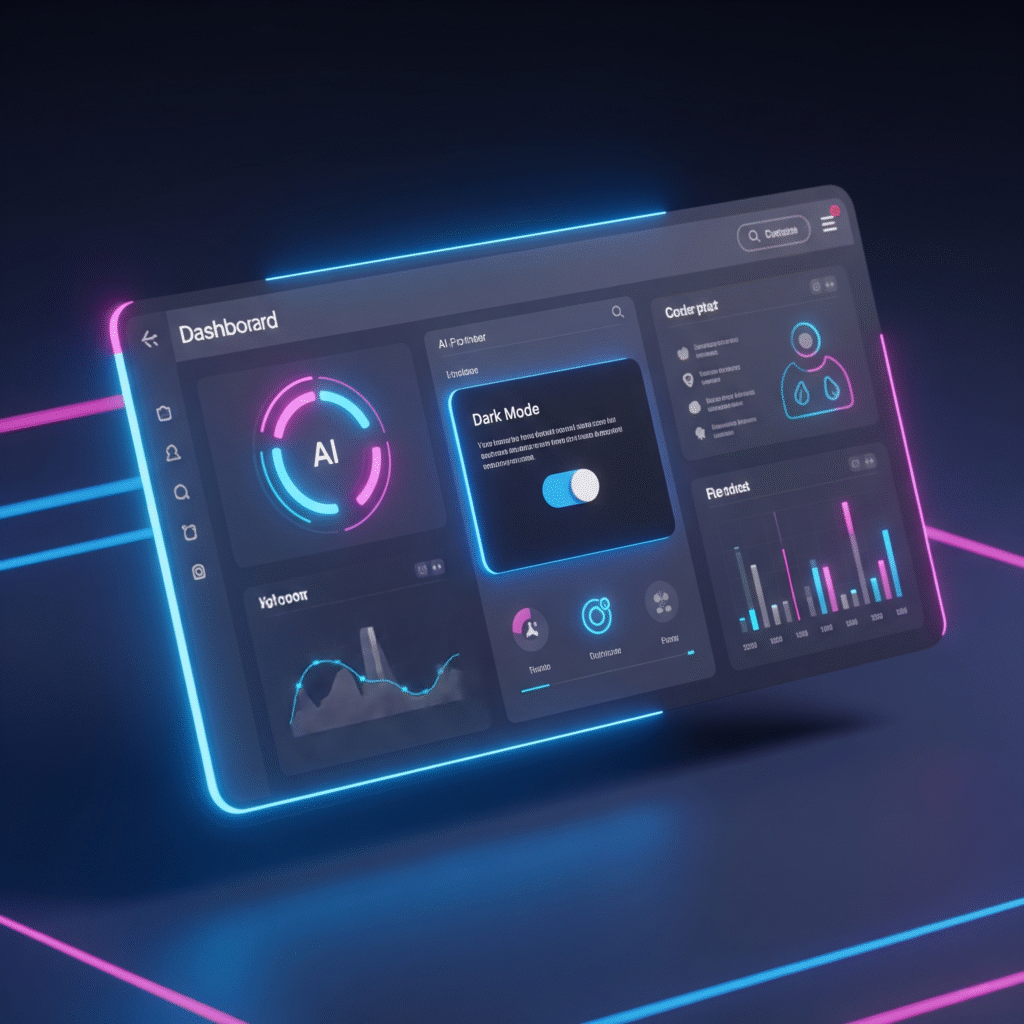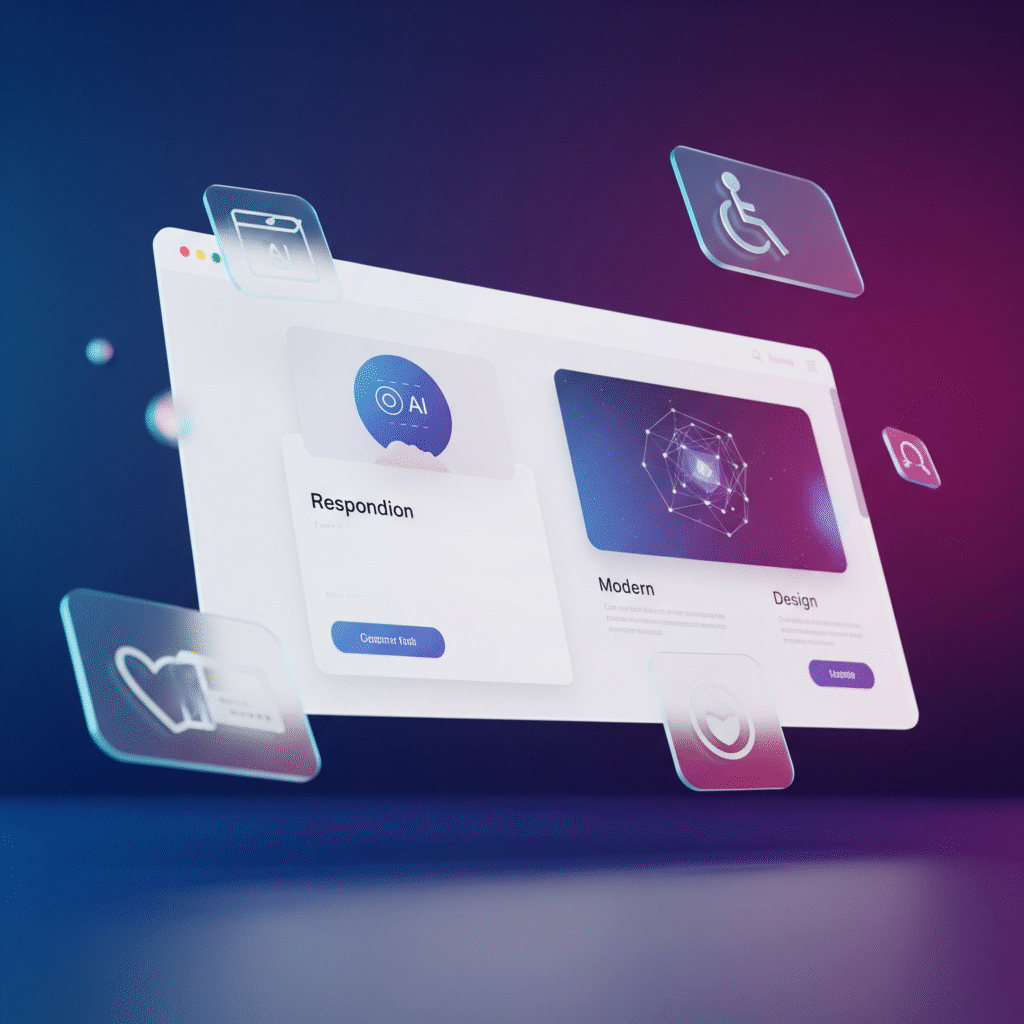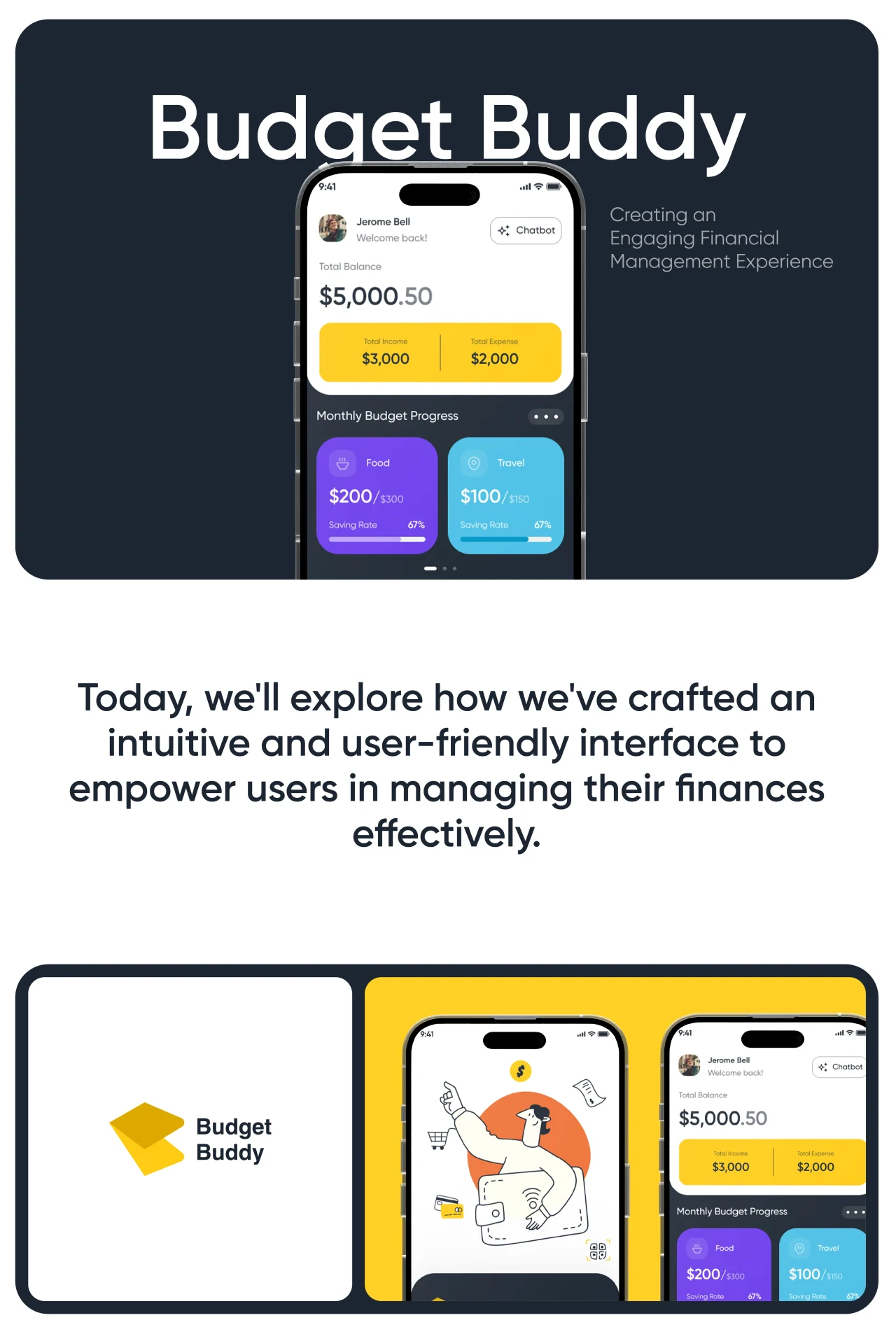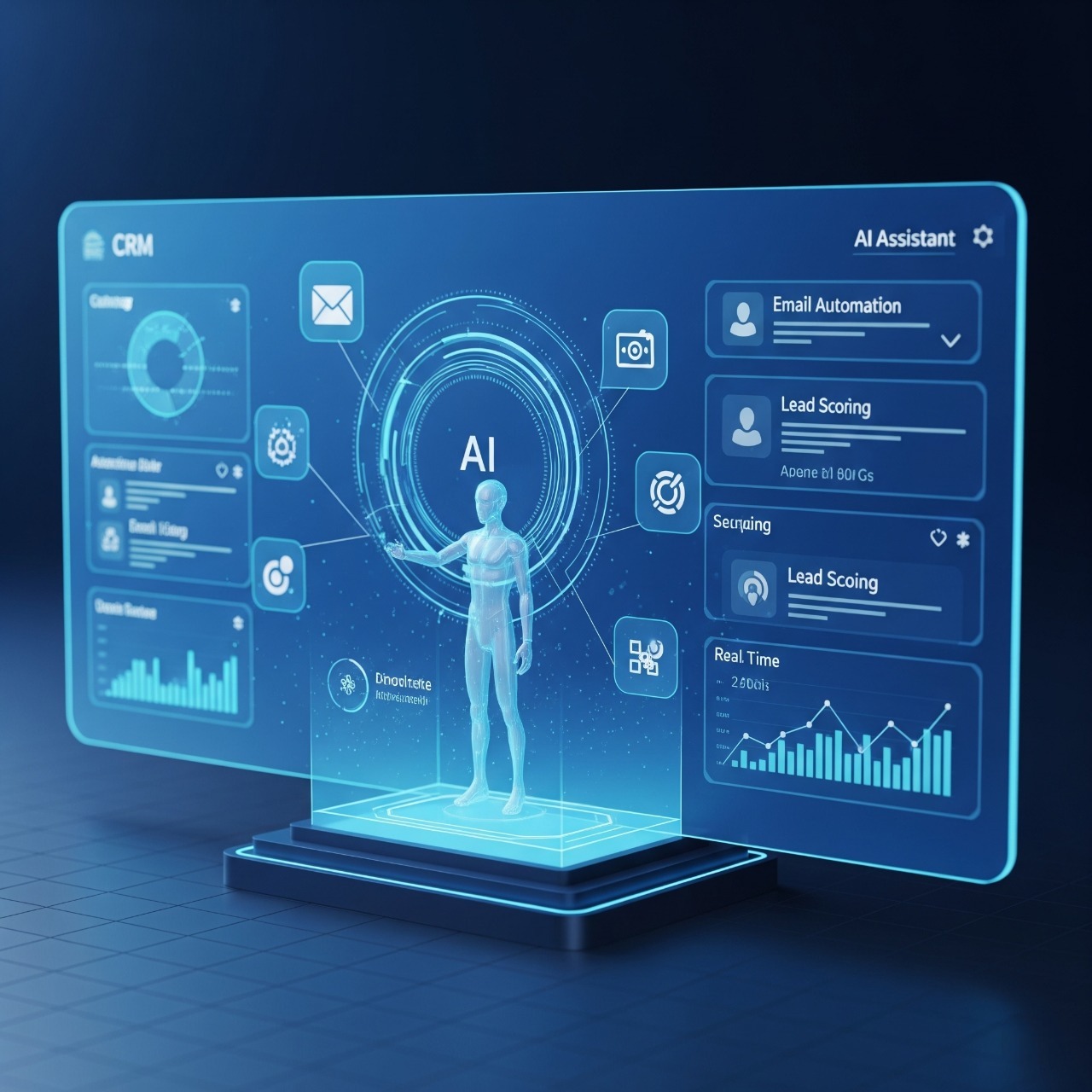Top 10 Website Design Trends in 2025:Web design is evolving faster than ever before, driven by user demands, AI technology, and digital innovation. In today’s competitive market, brands need more than just a beautiful website—they need intelligent, efficient, and future-ready platforms.
Understanding the top 10 website design trends in 2025 is key to building a strong online presence. From smart automation to immersive 3D visuals, these trends define the future of web design. At KinfoMedia, we’re passionate about pushing the boundaries with the best website design trends in 2025 to help brands grow.
Table of Contents
Toggle1. AI-Driven Design Automation
Artificial Intelligence is transforming top 10 website design trends in 2025 by offering intelligent tools that generate layouts, content, and even UX decisions.
Why It’s Trending:
AI platforms like Adobe Sensei and Figma AI allow for automated personalization, predictive content, and data-driven layouts.
Benefits:
Personalized user experiences
Faster design workflows
Improved engagement metrics
2. Immersive 3D and WebGL Experiences
One of the top 10 website design trends in 2025 is the use of 3D visuals and WebGL integration to create fully immersive websites.
Examples:
Virtual product demos, real estate walkthroughs, and interactive storytelling using Three.js.
Why it works:
Boosts engagement and makes complex offerings visually accessible.
3. Voice-Activated Interfaces
Website design trends in 2025 are becoming more accessible and hands-free. Voice search, commands, and feedback systems are integrated into modern site experiences.
Use Cases:
Voice-based navigation
Product searches using Siri or Google Assistant
Interactive chat via voice input
Benefit:
Voice-ready websites are faster and more inclusive.
4.Customizable Theme Modes
Dark mode is no longer optional. In 2025, sites offer light, dark, high-contrast, and sepia themes, giving users full control over their experience.
Why it’s part of the best website design trends in 2025:
It enhances readability, reduces eye strain, and caters to user preferences across devices.
5. Minimalism with Impact
Clutter-free, bold, and elegant design is leading the charge. Minimalism paired with powerful messaging makes websites more intuitive.
What’s Trending:
Large headings
Clean grids
Smooth transitions
Why It Works:
Faster load times and easier navigation improve user retention.
6. Motion UI and Micro-Interactions
Dynamic animations and small interaction cues guide users subtly through the site, improving usability and satisfaction.
Key Features:
Animated scroll transitions
Button click feedback
Hover effects
Why It’s a Top Trend:
These elements enhance engagement and make the interface feel alive.
7. Sustainability-Focused Design
Green UX is a fast-growing movement. Sites are optimized for performance and low energy consumption.
Examples:
Reduced use of autoplay media
Compressed images
Eco-friendly hosting solutions
Why It’s Among the Best Website Design Trends in 2025:
It supports environmental responsibility while improving performance.
8. Accessibility-First Design
Web accessibility isn’t just good practice—it’s a necessity in 2025. From visual to keyboard-friendly elements, sites are becoming truly inclusive.
Key Elements:
Screen-reader compatibility
Color contrast tools
ARIA labels and alt-text for images
Bonus:
Improves SEO and boosts brand credibility.
9. Headless CMS & Dynamic Content
Flexibility and speed are critical in 2025. Headless CMS allows content and design to function independently, improving performance.
Popular Tools:
Contentful, Strapi, and Sanity.
Benefits:
Fast load speeds
Cross-platform content delivery
Developer freedom
10. GEO-Optimized Web Design for AI Visibility
With AI-driven search (like Google SGE or ChatGPT) shaping discovery, websites need to be GEO-optimized (Generative Engine Optimization).
Tactics:
Use H1 to H4 headings properly
Structured content blocks
Schema markup and fast performance
Why It’s a 2025 Must-Have:
Improves visibility in AI-generated answers and smart summaries.
From AI-enhanced user experiences to sustainability and voice-first design, the top 10 website design trends in 2025 represent a major shift toward intelligent, inclusive, and performance-driven websites. Adopting these strategies is no longer optional—it’s essential for staying relevant in a fast-evolving digital landscape.
As businesses compete for attention in a saturated online space, leveraging the best website design trends in 2025 can set you apart. Whether you’re launching a startup, redesigning your brand’s digital presence, or optimizing for AI and voice search, these trends offer actionable paths to improve usability, increase conversions, and build long-term trust.
Why These Trends Matter for Your Business
Better User Engagement: Personalization, motion UI, and accessibility ensure visitors stay longer and interact more.
Higher Search Engine Visibility: GEO-optimized structures and accessibility improve both SEO and AI discoverability.
Faster Performance: Lightweight, minimalist design and headless CMS architectures deliver faster load times and smoother experiences.
Brand Trust & Loyalty: A well-designed, eco-conscious, and user-centric website shows your commitment to modern standards and customer needs.






